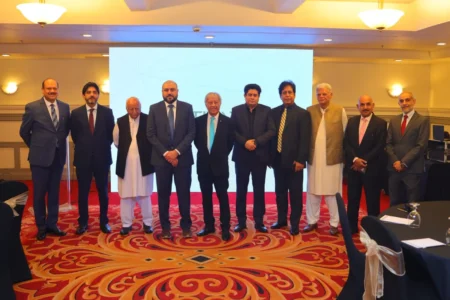On the 27th of September every year since 1980, United Nations World Tourism Organization celebrates the World Tourism day. On this date in 1970, the statutes of UNWTO were chosen and hence it is a special day indeed.
The prime aim of the day is to bring about awareness amongst people regarding the value of tourism in any place. This year, the Day’s theme is “Tourism and Rural Development”.
Firstly, let me appreciate and support Holiday weekly here for proactively working and projecting Pakistan with all its positivity in this difficult time and for bringing out Special report on World Tourism Day 2020.
No Doubt, worldwide, this is a darkest time for the travel, tourism, aviation and hotel industry. As global tourist destinations, big or small remained closedfor more than five months and even today there is hardly any destination in the world which is fully operational or open for all type of tourists. Similarly travel company operations continue to be wound down, the industry will increasingly look to the respective governments for bailout packages. As no one knows how long this global pandemic will last, operators should ere on the side of caution in their marketing communications.Today $1.6 trillion tourism industry is declaring bankruptcy and looking for bail out packages all around the world.
This year’s theme, “Tourism and Rural Development” is very relevant to Pakistan as Pakistan’s rural areas are full of tourists destinations of matchless beauty.In Pakistan, rural development should be the top priority of the government for the promotion of tourism as Pakistan ‘tourism mostly rely on the vast rural region of GB, Punjab, KP and Sindh. GB or formerly known as the Northern Areas of Pakistan is famous for its snowy mountains, tallest peaks, crystal clear water lakes, lush green valleys, remains of Buddhists art and civilization, mightyrivers and plentiful wildlife.
has been a pioneer in introducing sustainable ecotourism initiatives in GB. is working closely with the local communities, private sector and regulatory bodies in the region. Tourism Development Board of NA, training centers for ecotourism porters and guides are the outcomes of WWF-P initiatives.
The tourism industry in Pakistan has gone through period of robust growth and bust, from its heyday during the 1970s, when the country received unprecedented amounts of foreign tourists. The industry faced a downward trend due to 9/11 and war on terror during 2001. During the year 2017, more than 1.75 million foreign tourists visited Gilgit Baltistan as compared to 0.5million tourists who visited during corresponding period last year.
The last 2/3 years has seen a growth in active countryside domestic tourism as increasingly urban populations seek relaxation and leisure in rural areas. Ranging from traditional countryside pursuits, such as walking, horse riding, and bird watching, to the increasingly popular ‘adventure sports’ mountaineering and snowboarding.
No doubt our rural regions offer the required natural resources and quiet, picturesque settings necessary to enable our urban tourists to experience rurality and, frequently, controlled risk and excitement as an alternative to the perceived pressures and constraints of urban life.
Now it is the utmost duty of all stakeholders of travel and tourism sector particularly the governments and governmental tourism organizations to introduce sustainable ecotourism initiatives in all rural areas tourism destination particularly in GB.
The all tourism institutions including tour operators, hoteliers , private sector and regulatory bodies are needed to work closely with the local communities to give all necessary tourism related training and knowledge to local youth and economic benefits of tourism in their areas should be equitably pass on to them besides maintaining the ecofriendly and sustainable tourism in the areas and all tourism assets should be well protected from decay and pollutions.




